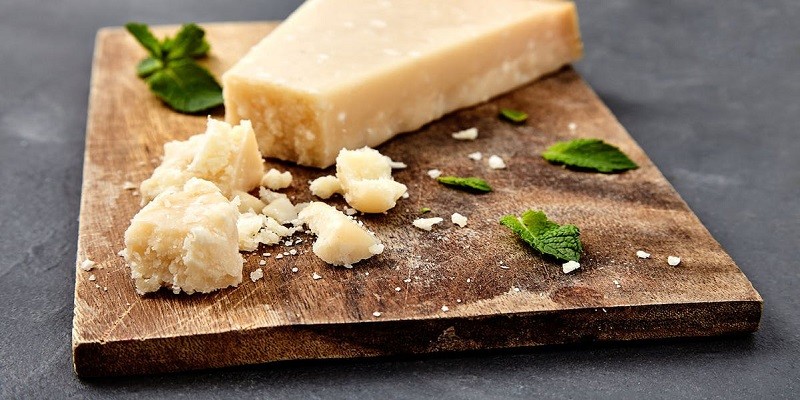Yes, you can eat Parmesan cheese while pregnant.
Parmesan cheese is generally considered safe for consumption during pregnancy, as it is a hard, aged cheese that undergoes a lengthy curing process, reducing the risk of bacterial contamination. However, it’s essential to understand the nutritional value, potential risks, and safe ways to incorporate Parmesan into your diet during this crucial time.
What is Parmesan Cheese?
Parmesan is a hard, granular cheese that originated in Italy. It is typically made from cow’s milk and has a fruity, savory flavor. Parmesan is renowned for its grainy texture and is often aged for an extended period, contributing to its rich and robust taste. It is widely used in cooking and is a key ingredient in dishes like pasta, salads, and risotto.
Nutritional Value of Parmesan Cheese
| Nutritional Value | Details |
|---|---|
| Protein | High in protein, providing essential amino acids for fetal development. |
| Calcium | Rich in calcium, crucial for the baby’s bone and teeth development. |
| Phosphorus | Contains phosphorus, which supports bone health and energy production. |
| Vitamin B12 | A good source of vitamin B12, important for red blood cell formation. |
Risks of Eating Parmesan Cheese During Pregnancy
| Risks | Details |
|---|---|
| Listeria Contamination | Unpasteurized or improperly aged Parmesan may harbor Listeria bacteria, which can cause listeriosis, a serious infection during pregnancy. |
| High Sodium Content | Parmesan cheese is high in sodium, which can contribute to water retention and increased blood pressure during pregnancy. |
Safe Ways to Eat Parmesan Cheese During Pregnancy
When consuming Parmesan cheese during pregnancy, it’s crucial to ensure it is made from pasteurized milk and has undergone proper aging. Opt for commercially produced Parmesan, as it is typically made with pasteurized milk, reducing the risk of bacterial contamination. Additionally, practice good food hygiene and avoid consuming Parmesan if it has been left at room temperature for an extended period.
Alternatives to Parmesan Cheese During Pregnancy
| Alternatives | Precautions |
|---|---|
| Cheddar Cheese | Ensure it is made from pasteurized milk. |
| Mozzarella Cheese | Avoid fresh, unpasteurized varieties. |
| Cottage Cheese | Choose pasteurized varieties. |
| Ricotta Cheese | Opt for pasteurized ricotta. |
Expert Tips
- “Always read labels carefully and look for the word ‘pasteurized’ when choosing cheeses during pregnancy.” (Source: Healthline)
- “If you’ve accidentally eaten cheese that’s in the unsafe category, try not to worry too much. Contact your doctor if you have questions about your potential exposure.” (Source: Healthline)
- “Cooking cheese until it’s steaming hot kills bacteria, reducing the risk of listeriosis.” (Source: NHS)
FAQs
Can I eat Parmesan cheese from a restaurant while pregnant?
It’s generally safe to consume Parmesan cheese from restaurants, as most establishments use commercially produced, pasteurized varieties. However, it’s always best to inquire about the source and pasteurization status of the cheese to be on the safe side.
Is it safe to eat grated Parmesan cheese during pregnancy?
Yes, grated Parmesan cheese is safe to consume during pregnancy, as long as it is made from pasteurized milk and has been properly stored and handled.
Can I eat Parmesan cheese on pizza while pregnant?
Yes, you can eat Parmesan cheese on pizza while pregnant, as the cheese is typically made from pasteurized milk and is cooked at high temperatures, reducing the risk of bacterial contamination.
Is it safe to eat Parmesan cheese in the first trimester?
Yes, Parmesan cheese is generally considered safe to consume throughout all trimesters of pregnancy, as long as it is made from pasteurized milk and has been properly aged and handled.
Can I eat Parmesan cheese if I have a history of listeriosis?
If you have a history of listeriosis or a weakened immune system, it’s best to consult with your healthcare provider before consuming Parmesan cheese during pregnancy, as they may recommend additional precautions or alternatives.
Conclusion
Parmesan cheese can be a safe and nutritious addition to your diet during pregnancy, provided it is made from pasteurized milk and has undergone proper aging. By following safe handling practices, reading labels carefully, and being mindful of portion sizes, you can enjoy the rich flavor and nutritional benefits of Parmesan while ensuring the well-being of you and your baby.
Last Updated on May 25, 2024 by Marjorie R. Rogers, MA (English), Certified Consultant

